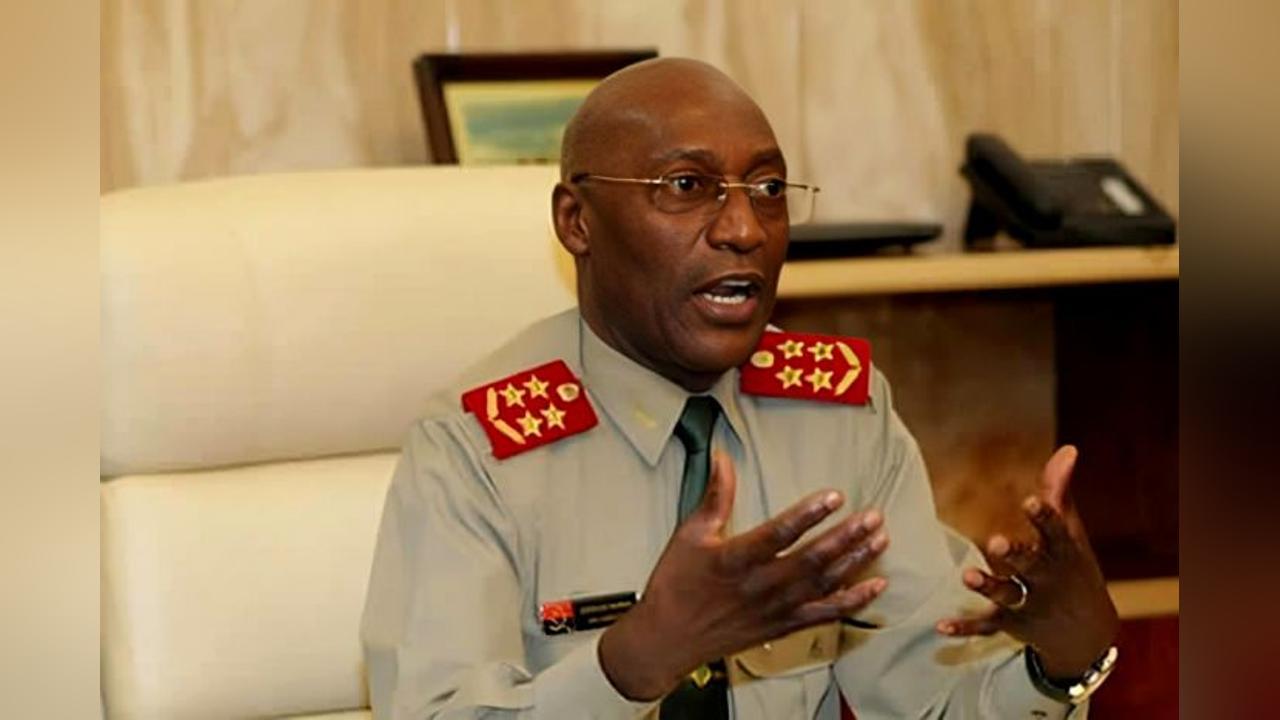Africa-Press – Angola. For Geraldo Sachipengo Nunda, much of the information that reached UNITA leader Jonas Savimbi regarding the elimination of certain people needed to be further investigated. For this reason, he explained, he did not agree with the idea of eliminating men and women because he thought it would not be fair in the midst of so many misunderstandings and intrigues.
General Geraldo Sachipengo Nunda revealed yesterday that, during the guerrilla period, he had received orders several times from UNITA leader Jonas Savimbi to kill certain figures, but that he did not do so because he understood that some situations were nothing more than intrigue.
Speaking to Rádio Nacional, as part of the 50th anniversary of National Independence, Nunda said that his position meant that, for a long time, he had his “backs turned” to senior UNITA figures at the time, including Jonas Savimbi himself.
“I was given several orders that certain individuals should be eliminated. I never eliminated them. I preferred to talk to these people and understand what was happening because sometimes it was just intrigue,” he pointed out.
According to Sachipengo
Nunda, much of the information that reached the UNITA leader regarding the elimination of certain people needed to be further investigated. For this reason, he explained, he did not agree with the idea of eliminating men and women because he thought it would not be fair in the midst of so many misunderstandings and intrigues.
“There were many cases like this. A lot of distorted information that later led to someone’s execution. In most cases, it was intrigue. There were no very concrete things. So it was necessary to consider,” he said.
For him, at the time, it was better to consider the death of several people so as not to fall into the regret that could haunt him to this day.
“A person is not like a tree, whose head grows back after you cut it down.” When you cut off someone’s head, it is completely gone, it doesn’t grow back,” he stressed.
“I was the only one who opposed the burning of witches”
On the other hand, Sachipengo Nunda also made it known that he was the only one in the UNITA party who always opposed the well-known witch burning process, which was a group of women massacred and burned at the behest of Jonas Savimbi.
According to the career military man, that was an unfair process in which many women were unjustly victims and it was incomprehensible how it was possible to see many people, academically well-educated, believing in and supporting the torture of innocent women who were accused of witchcraft.
“I was the only one who opposed the burning of the witches. I didn’t believe that those women had any power over the war. I was completely against it and I was the only one who raised my hand,” he recalled, adding that “Savimbi himself asked if I wasn’t afraid, defending those women alone. But I had to express my point of view.
José Eduardo was a leader who knew how to listen
In another approach, Geraldo Sachipengo Nunda said that he received, in 2010, with surprise, the indication and appointment as Chief of Staff of the Armed Forces of Angola, at the time, replacing Francisco Furtado.
He said that, taking into account the long years of war that Angola had experienced, his appointment effectively represented a clear indication by the then President of the Republic, José Eduardo dos Santos, that he was committed to the process of National Reconciliation.
He also stated that during the time he worked as Chief of Staff of the Angolan Armed Forces, he was always consulted and called upon by the then Commander-in-Chief of the Angolan Armed Forces (FAA), Eduardo dos Santos.
As he mentioned, one of the references he kept at the time was the fact that the then President knew how to listen to all the concerns that were presented to him.
We need to build peace every day
Geraldo Sachipengo Nunda, who was also Ambassador Extraordinary and Plenipotentiary of the Republic of Angola accredited to the United Kingdom, defended the need for Angolans to preserve and build peace every day.
In his opinion, peace, achieved in 2002, must be preserved and safeguarded by all Angolans, taking into account the sacrifice made to achieve it.
“We need to build and preserve peace every day to effectively achieve National Reconciliation.” And this is done with the involvement of everyone and not just a group of people,” he appealed.
For More News And Analysis About Angola Follow Africa-Press






